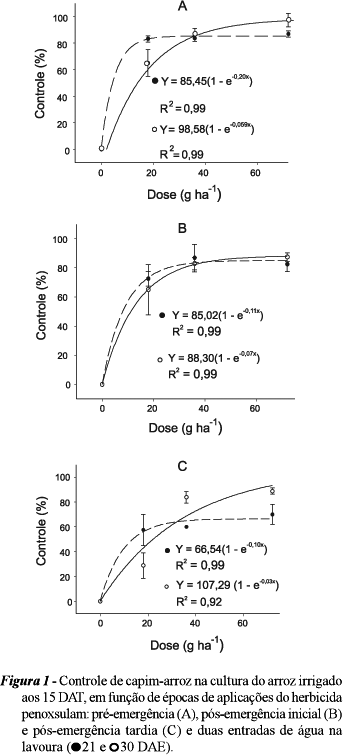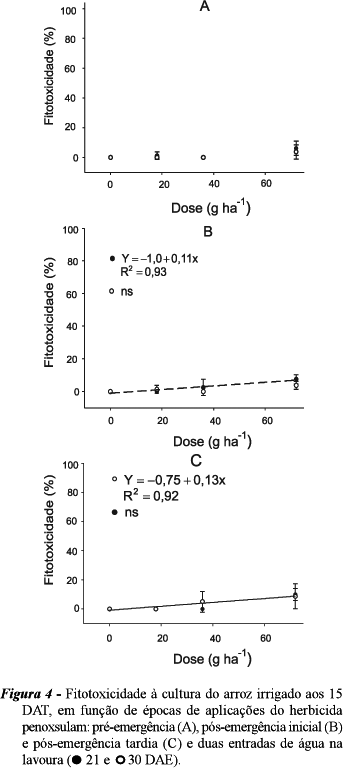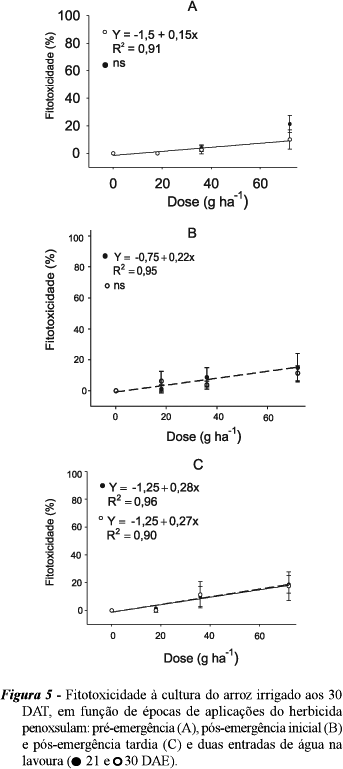The objective of this work was to evaluate the efficiency of the herbicide penoxsulam as a function of the start of permanent irrigation and time and rate of application, in controlling Echinochloa crusgalli and E. colona, as well as its selectivity to the rice culture, cv. Qualimax 1. The trial was conducted under field conditions in a completely randomized block design, in a factorial scheme 2x3x4 with four replications. The factorial scheme were the irrigation starting times (21 and 30 days after emergence - DAE), application times (pre-emergence and early and late post-emergence) and penoxsulam rates (0, 18, 36 and 72 g h ¹). The evaluated variables were Echinochloa control, rice plant phytotocixity, and rice grain yield. Early irrigation increased the efficiency of penoxsulam in Echinochloa control; however, the effect of late irrigation was partially offset by the increase in the penoxsulam rates. When irrigation started late, reduced grain yield was observed independently time and rate of herbicide application.
Oryza sativa; rate; field water input; application stage; penoxsulam









